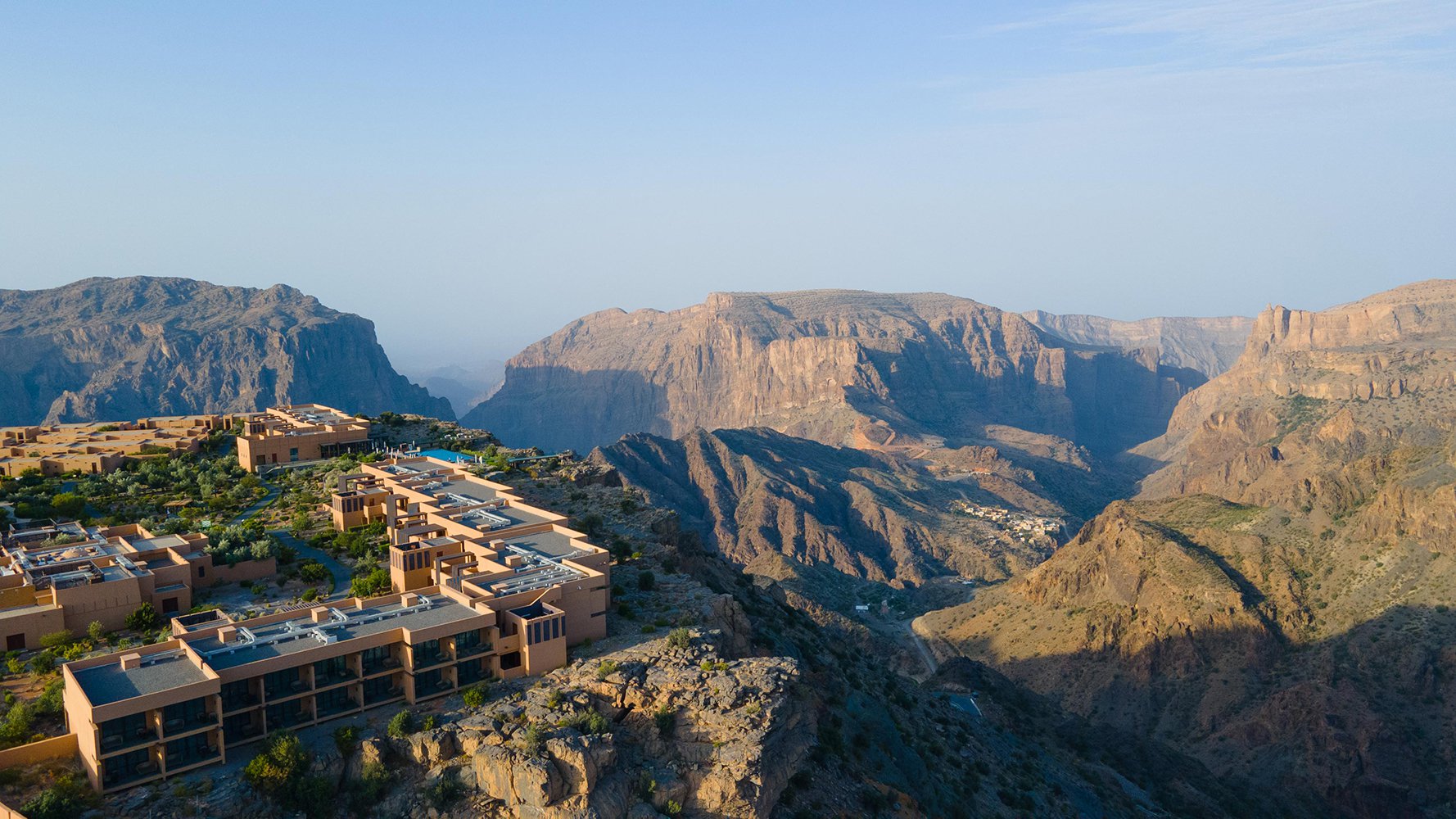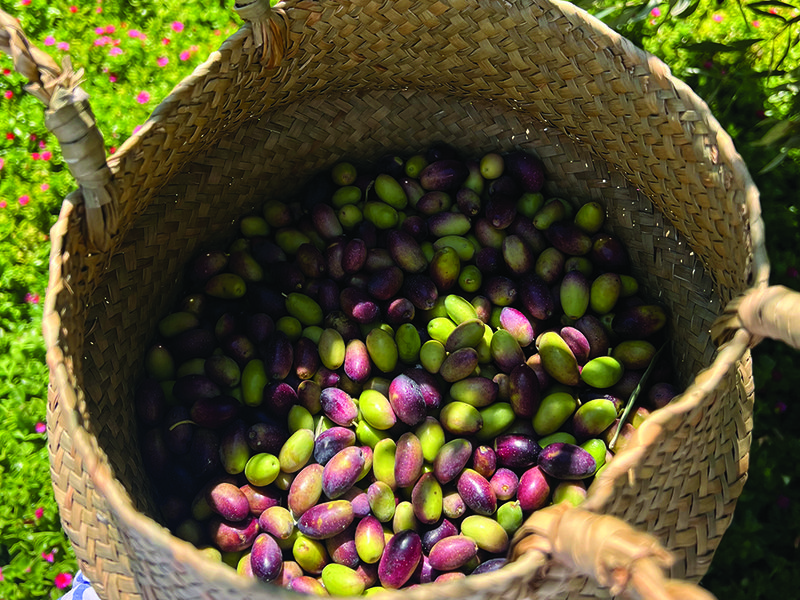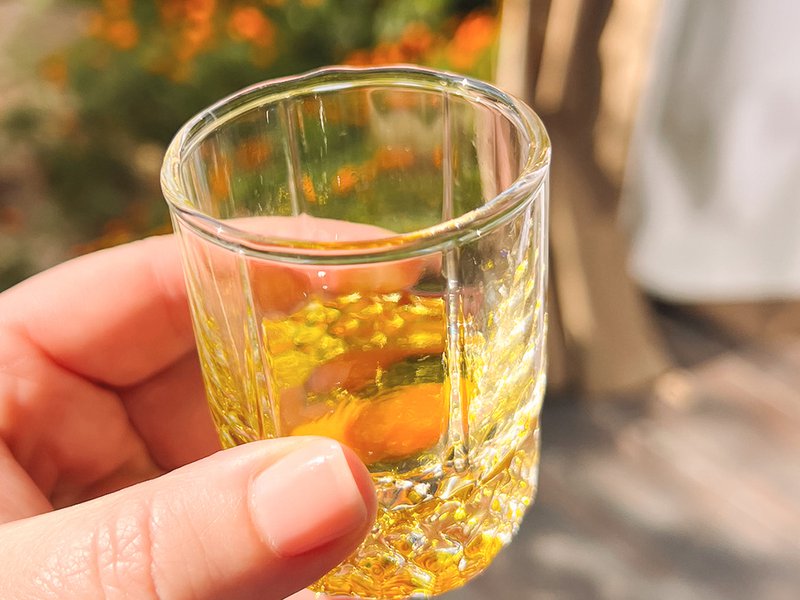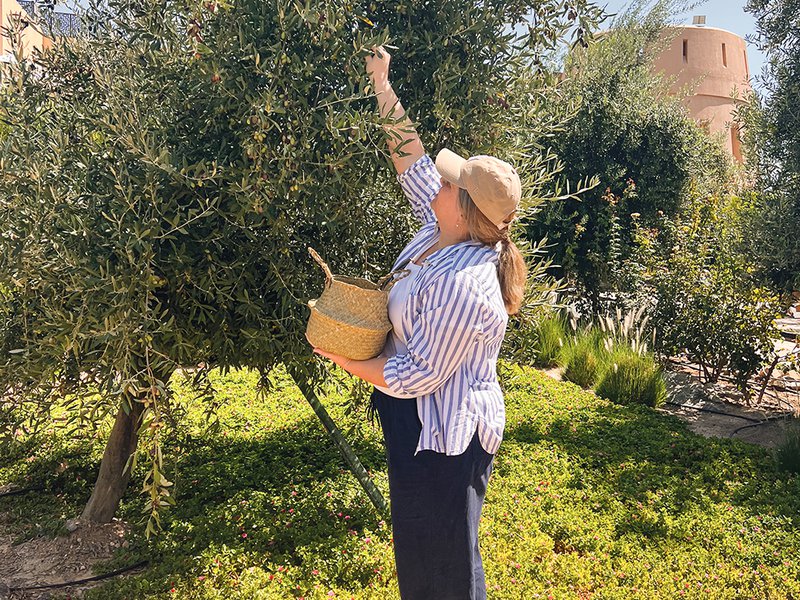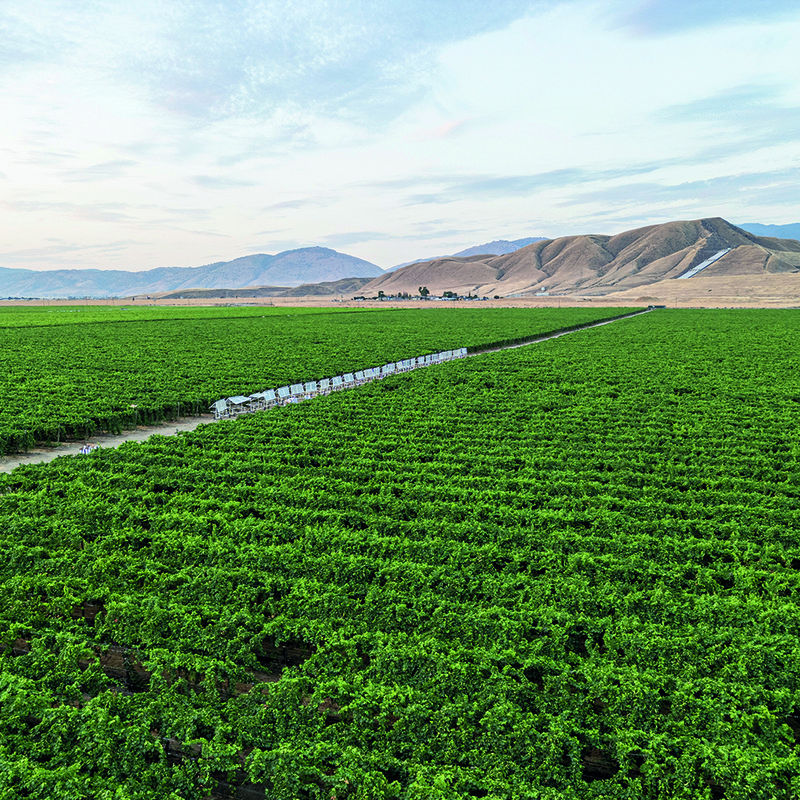Perched at 2,000 metres above sea level, on the Saiq Plateau of Oman’s renowned ‘Green Mountain’ in the Al Hajar Mountains, Anantara Al Jabal Al Akhdar Resort curves around the precipice of a dramatic canyon.
Its location sounds remote, but getting there is not difficult. It’s a two-hour drive from the capital Muscat, and the journey there is as impressive as the destination itself. Climbing up to the five-star abode (this part of the trip can only be done in a 4WD) allows for views of ruins, forts and clustered date-palm plantations.
The area in which the resort is located has a distinctive Mediterranean-style climate – a rare jewel in the country – which allows for a flourishing of fruits and vegetables. In April and May, terraced farmlands (overlooked by the Anantara) are alive with pink Damask roses cascading down the slopes. Then come the peaches, pears and apricots, followed by pomegranates, a valuable source of income for the farmers in the region. If all this makes it sound like a wonderland, that’s because it is.
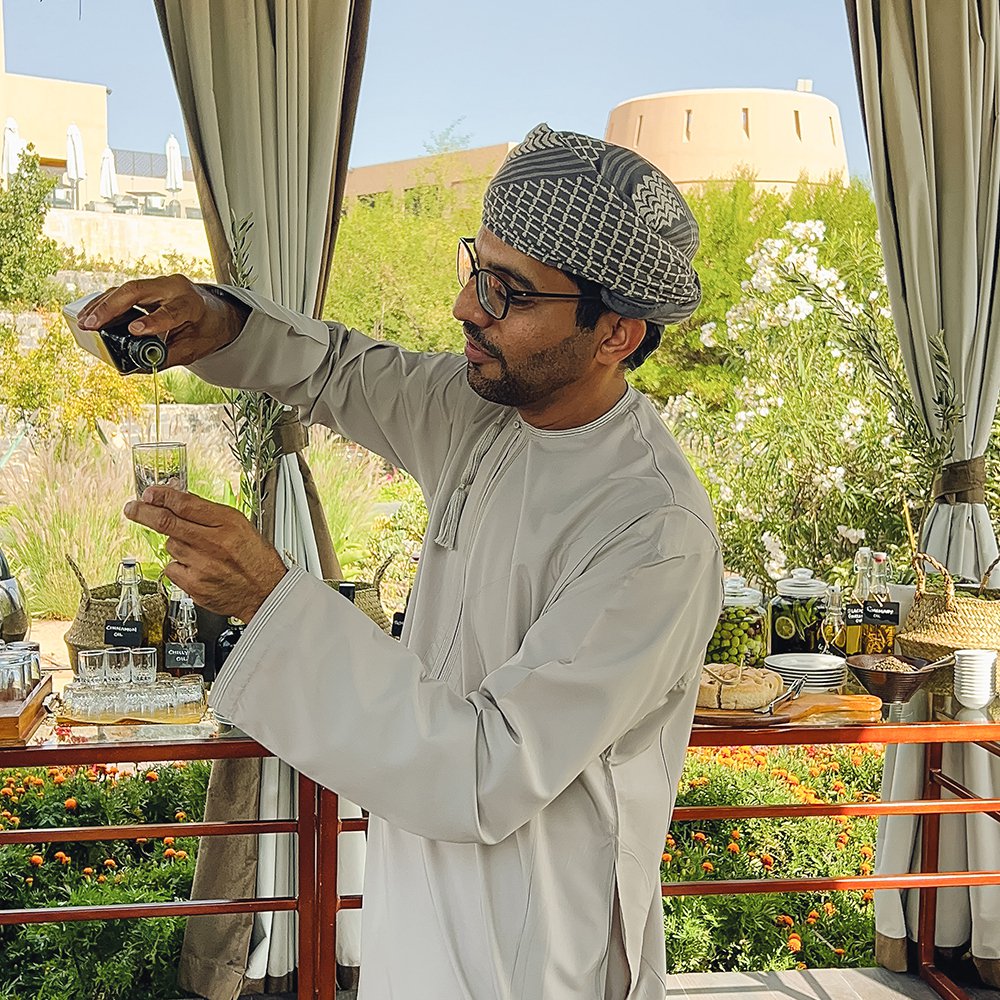
Dr Ali Saleh Al Forqani
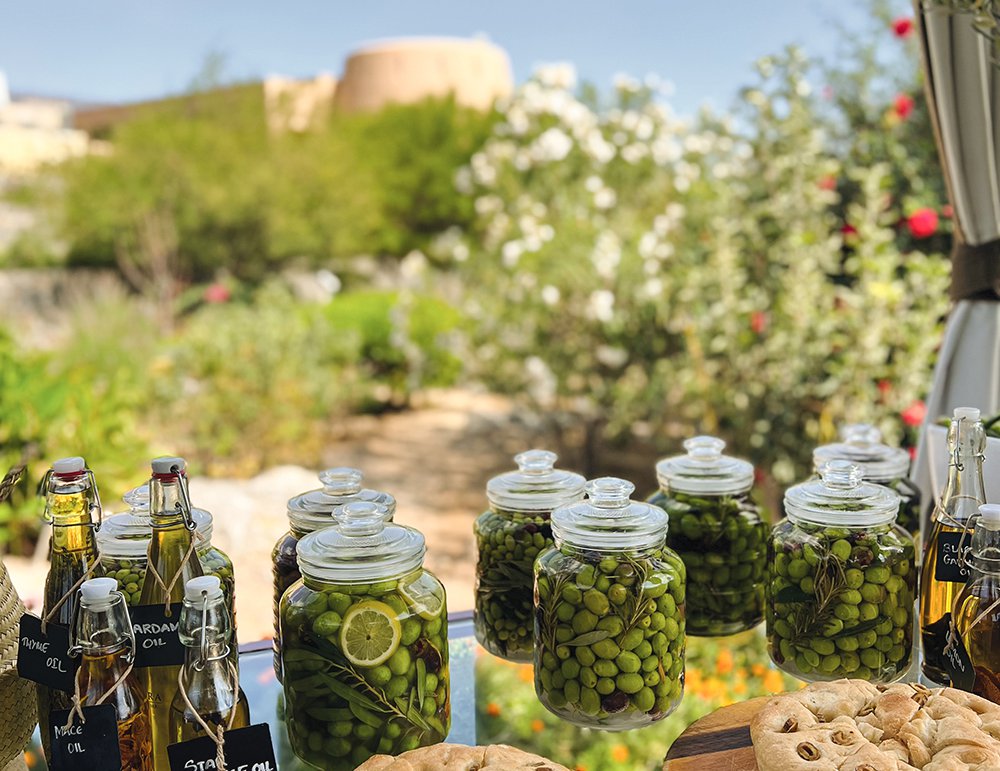
An olive oil tasting
Olive groves also dot the landscape – sturdy trees stand gracefully, their silvery-green leaves shimmering in the sunlight. Local growers began cultivating these plants in the early ’60s after the former King of Spain gifted them with olives during a visit. This planted the seed for what is now a burgeoning local olive oil industry.
The Al Jabal Al Akhdar Olive Harvest Festival is an annual celebration, held by Anantara, to honour these magnificent trees. It’s the reason I recently visited the resort, for a wholesome weekend of storytelling, olive harvesting, oil pressing and culinary demonstrations.
On arrival, I met up with “Mountain Guru” Dr Ali Saleh Al Forqani – who is also the deputy director general of Royal Gardens and Farms for Farm Services in Oman.
“There’s a saying in Arabic which translates to ‘from the tree to the press’,” said Dr Ali.
This emphasises the fact that time plays a crucial role in olive oil production at several key stages. Olives should be picked when they are ripe but not overripe (known as the “chocolate stage”), as this influences flavour, aroma and acidity. After harvesting, olives should be processed quickly to prevent oxidation and fermentation, which can degrade quality. Ideally, milling should happen within 24 hours of harvesting. This process, including the extraction of oil, must be efficient. Delays can lead to a decline in oil quality, impacting flavour and shelf life. Timing is of the essence beyond production, too. Once produced, the oil should be stored in optimal conditions (cool, dark and airtight) and used up quickly.
Guiding me through the spectrum of olive oils, from the holy grail of extra virgin olive oil to pomace, Dr Ali highlighted key differentiators like acidity and polyphenol levels. He emphasised the ever-increasing list of health benefits, including its anti-inflammatory properties and heart health advantages. He also dispelled the myth that olive oil shouldn’t be used for cooking, showcasing its versatility in the kitchen. “Of course you can cook or fry with olive oil – EVOO has a low smoke point and it won’t harm you,” he said. “But I would still rather just drink it!”
Doing just so during a tasting session was quite the performance of swirling, slurping and sipping the oil to experience every nuance of flavour. Following suit, I tried a small tapered glass of the region’s finest liquid gold followed by an organic PGI olive oil made in Sicily by Jorge Marcelo Robles, that is currently only for sale in Oman.
His olive oil also complemented a set menu at Anantara’s Bella Vista restaurant as part of the overall festival. There, visiting guest chef Riccardo Passoni, executive chef at NH Collection Milano President, infused a touch of his own Italian flair into the fare. And at Al Qalaa, Chef Aristondo, from NH Collection San Sebastian Aranzazu, presented Basque-inspired dishes such as melt-in-your mouth tuna tataki marinated in olive oil and a creamy puff pastry dessert with a decadent dark chocolate and olive oil ganache.
To round off the weekend, I took part in a harvesting competition: handpicking olives, just like all the local farmers as well as Jorge and his team do in Sicily. I managed to fill a woven basket with, let’s be generous here, around 1½kg of fruit. Nowhere near enough to make 1 litre of oil, as I’d learned at the local Misfar press the day before, but a good start into a dream future hobby of mine in a glorious location nonetheless.
